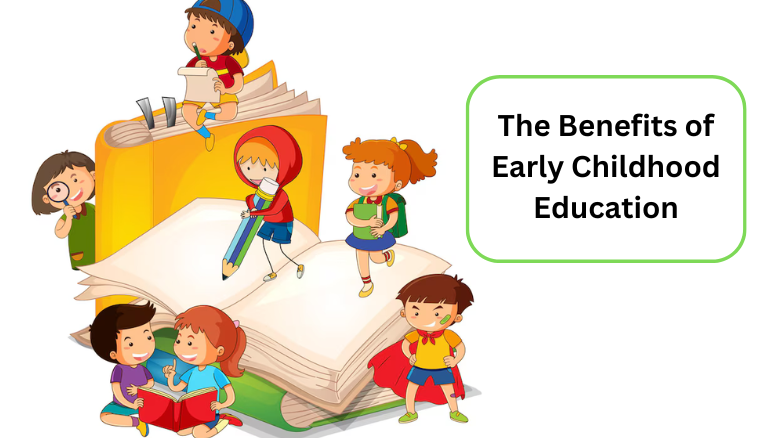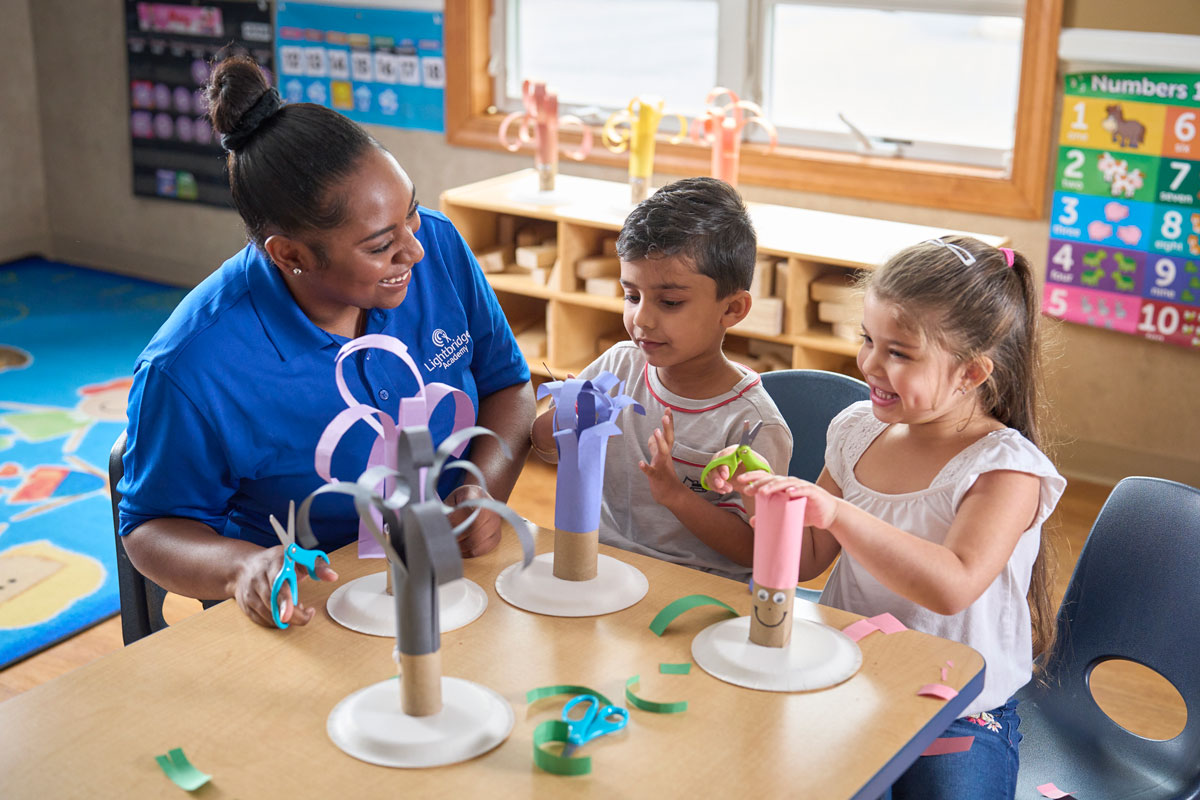The Importance of Early Childhood Education: Shaping a Bright Future for Young Learners
Introduction: Understanding Early Childhood Education
Early childhood education (ECE) plays a critical role in shaping the future of young children. It’s a pivotal stage that sets the foundation for lifelong learning, social skills, and emotional development. ECE typically refers to the period of education from birth to eight years old, during which a child’s brain is most receptive to learning.
In this article, we’ll explore the numerous benefits of early childhood education, its impact on children’s development, and why investing in it is essential for both individuals and society.

1. The Benefits of Early Childhood Education
Early childhood education offers a wide range of benefits that go beyond academic success. Here are a few key advantages:
-
Improved Cognitive Skills: Young children who attend quality early education programs often show improved memory, problem-solving, and language skills compared to their peers who do not.
-
Socialization: ECE provides an opportunity for children to interact with their peers, helping them develop critical social skills like sharing, communication, and conflict resolution.
-
Increased Academic Achievement: Studies consistently show that children who participate in early education programs tend to perform better academically in later years.
By focusing on early education, we give children a head start in life, equipping them with the tools they need to thrive.

2. The Role of Early Childhood Educators
Early childhood educators play a crucial role in the development of young children. These professionals create a safe, nurturing, and stimulating environment where children can grow, learn, and explore.
Key roles of early childhood educators include:
-
Building Trust: Establishing strong, supportive relationships with children is vital to fostering a positive learning experience.
-
Individualized Learning: Educators work to understand each child’s unique learning style and needs, offering personalized attention.
-
Encouraging Curiosity: Educators help spark curiosity in children, encouraging them to ask questions and engage with their surroundings.
Effective early childhood educators are more than just teachers; they are mentors who lay the groundwork for a child’s emotional and intellectual development.
3. Early Childhood Education and Emotional Development
Emotional development in early childhood is just as important as cognitive skills. ECE programs offer a safe space for children to understand and manage their emotions. Through structured activities and social interaction, children learn to express their feelings appropriately and develop empathy for others.
-
Self-Regulation: Early childhood education helps children understand how to manage their emotions, which is key to personal success in school and later life.
-
Building Confidence: Positive reinforcement in an ECE setting boosts a child’s self-esteem, making them more confident and willing to take risks in their learning.
-
Conflict Resolution: In group settings, children often face minor conflicts. Through guidance from educators, they learn how to resolve disputes in a healthy manner.
The emotional skills gained during these formative years are essential for success in both personal and academic settings.
4. Long-Term Effects of Early Childhood Education
The impact of early childhood education lasts far beyond the early years. Research shows that children who attend high-quality ECE programs have better outcomes later in life. These long-term effects include:
-
Higher Graduation Rates: Children who attend early education programs are more likely to finish high school and pursue higher education.
-
Improved Career Opportunities: ECE sets the stage for lifelong learning, which can lead to better career prospects and economic stability.
-
Reduced Behavioral Issues: Early education helps children develop emotional regulation skills, leading to fewer behavioral issues as they grow older.
Investing in early childhood education doesn’t just benefit the child—it benefits society as a whole by creating a more educated and productive population.
5. Access to Early Childhood Education: A Global Perspective
While the benefits of early childhood education are universally recognized, access to quality programs varies widely across the globe. In some regions, ECE programs are readily available and even mandatory, while in others, access remains limited due to economic, social, or political factors.
-
Developed Countries: Countries like Finland and Sweden offer universal early childhood education, where all children can attend high-quality preschool programs.
-
Developing Countries: In many developing nations, access to early childhood education remains a challenge due to lack of infrastructure, funding, and trained educators.
It’s essential for governments, communities, and individuals to prioritize universal access to early education, ensuring that every child has the opportunity to succeed.

6. How Parents Can Support Early Childhood Education at Home
Parents play a significant role in their child’s education, and this support doesn’t need to end when the school day does. By reinforcing what children learn in school and fostering a learning-friendly environment at home, parents can greatly enhance their child’s development.
Here are a few simple ways parents can support early childhood education:
-
Reading Together: Reading to and with your child helps develop early literacy skills and fosters a love for books.
-
Encouraging Play: Play-based learning is an essential part of early education. Activities like building with blocks or drawing promote creativity and problem-solving skills.
-
Open Communication: Keep an open line of communication with teachers to ensure that you are supporting your child’s educational needs both at home and in school.
By making learning fun and interactive at home, parents can support their child’s growth and development beyond the classroom.
7. Early Childhood Education for Special Needs Children
For children with special needs, early childhood education is crucial in helping them develop the skills they need to succeed. Specialized ECE programs offer tailored support for children with physical, developmental, or learning challenges.
-
Individualized Support: Special needs programs often provide individualized attention, helping children progress at their own pace.
-
Therapeutic Interventions: Early childhood educators often work alongside speech therapists, occupational therapists, and other professionals to provide comprehensive care.
-
Social Integration: Inclusion programs allow children with special needs to learn alongside their peers, fostering empathy and social skills.
Ensuring that children with special needs have access to quality early childhood education helps them reach their full potential and reduces barriers to learning.
8. Key Trends in Early Childhood Education
Early childhood education continues to evolve, with new trends emerging to meet the needs of modern learners. Here are a few trends to keep an eye on:
-
Technology in ECE: Technology is becoming more integrated into early education, with digital tools used to support learning and foster creativity.
-
Inclusive Education: There is a growing emphasis on inclusion, ensuring that children of all abilities have access to high-quality education.
-
Social-Emotional Learning (SEL): More ECE programs are focusing on developing emotional intelligence, teaching children how to manage their emotions and interact positively with others.
These trends ensure that early childhood education stays relevant and continues to support children’s evolving needs.
FAQs: Early Childhood Education
Q1: What is the best age to start early childhood education?
A1: Ideally, children should begin formal early childhood education between the ages of 3 and 5. However, exposure to educational activities can start as early as infancy to foster cognitive and emotional development.
Q2: Can early childhood education help with behavioral issues?
A2: Yes, early childhood education can help address and prevent behavioral issues by promoting social-emotional development, teaching self-regulation, and providing a structured environment.
Q3: How can I find high-quality early childhood education programs?
A3: Look for programs that are accredited by reputable organizations, employ well-trained educators, and offer a curriculum that balances play-based learning with academic skills.
Conclusion: A Lifelong Investment in Education
Early childhood education is an investment in a child’s future that pays lifelong dividends. From academic success to emotional well-being, the foundation laid in these early years has a lasting impact on a child’s development. By ensuring that every child has access to quality early childhood education, we can help create a brighter, more successful future for all.

For more information on how early childhood education shapes young minds, visit our Early Childhood Education Resources.








